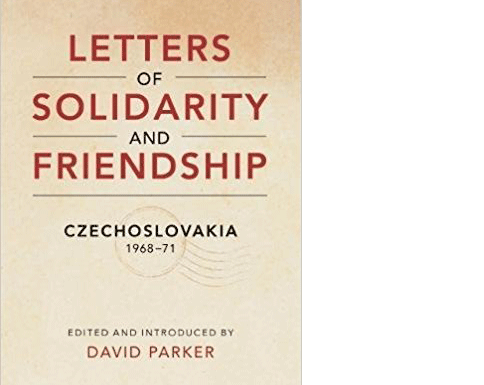Letters of Solidarity and Friendship: Czechoslovakia 1968-71
Book review

Letters of Solidarity and Friendship: Czechoslovakia 1968-71, [ed] David Parker, Bacquier Books, 2017, 436p, £14-99. ISBN 978-5262-0603-9
These Letters of Solidarity and Friendship are, in effect a tribute by Professor David parker to a letter-writing relationship which his late father, Leslie Parker, had with Paul Zalud in Czechoslovakia. Leslie was a long-standing member of the Communist Party, deeply attached to the principles of communism, and Paul Zalud was a Czechoslovakian who, whilst being excited by the emergence of Alexander Dubcek’s leadership in 1968, was disillusioned with the practical way that communism had been applied, and then was applied after the fall of Dubcek, in his own country.
In reading these letters we are introduced to the heart-felt thoughts of both sides of a political dimension. On the one hand a former Anglican priest who was convinced that the communist philosophy was the way forward and would prevail, set against the experience of a man who had been excluded from aspects of everyday life because of his critical attitude to the status quo in Czechoslovakia.
Anyone interested in the wider context and what happened in the Prague Spring of 1968 and the fate of Alexander Dubcek will find these letters to be a revealing experience.
Thinking back almost fifty years to the controversial era covered by these letters, the very trenchant views expressed by Leslie provide a critique of the people and events of that time. For example in September 1970 Leslie expresses the view that, whilst Dubcek understood the social problems of the time and felt the need of humanity, the latter was being exploited by bourgeois interests. Again he noted that, whilst communists had spoken of the need for change to achieve the New Society, when such a reformer emerged they failed to recognise him or they disliked what he represented. In the same letter he observed that Lyndon Johnson was a ‘frank liar’ and yet he did more for anti-segregation and the needs of old people and the poor than did Kennedy.
What I feel about these letters and Leslie Parker’s views is that, although I would not have shared his philosophy at the time, he frequently offers a very shrewd analysis of people and events, with which I do agree. This is a very good source.

